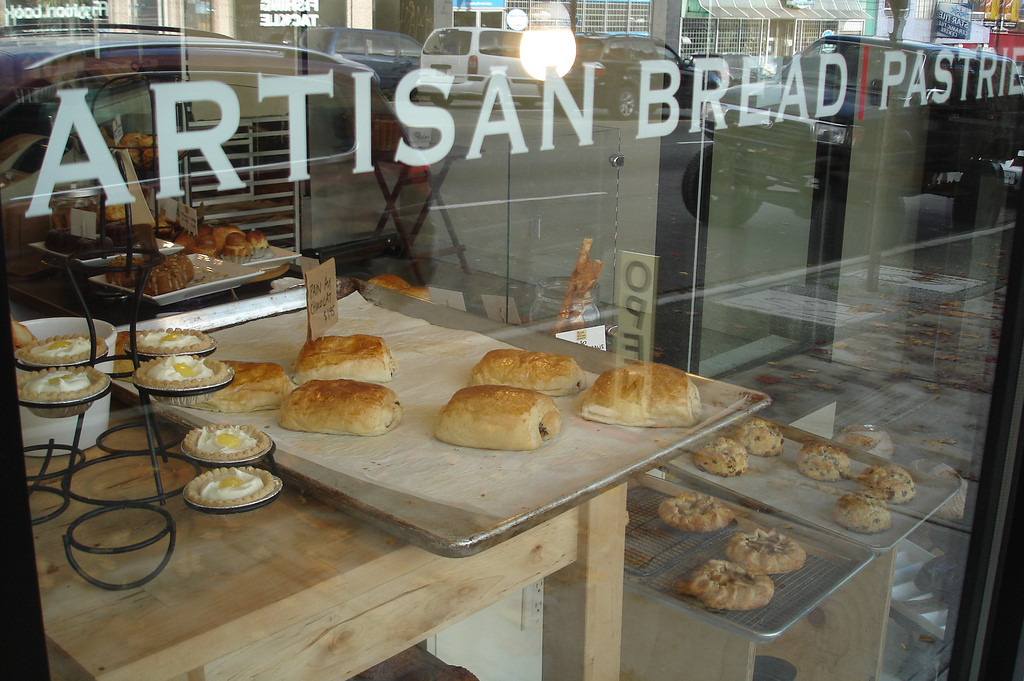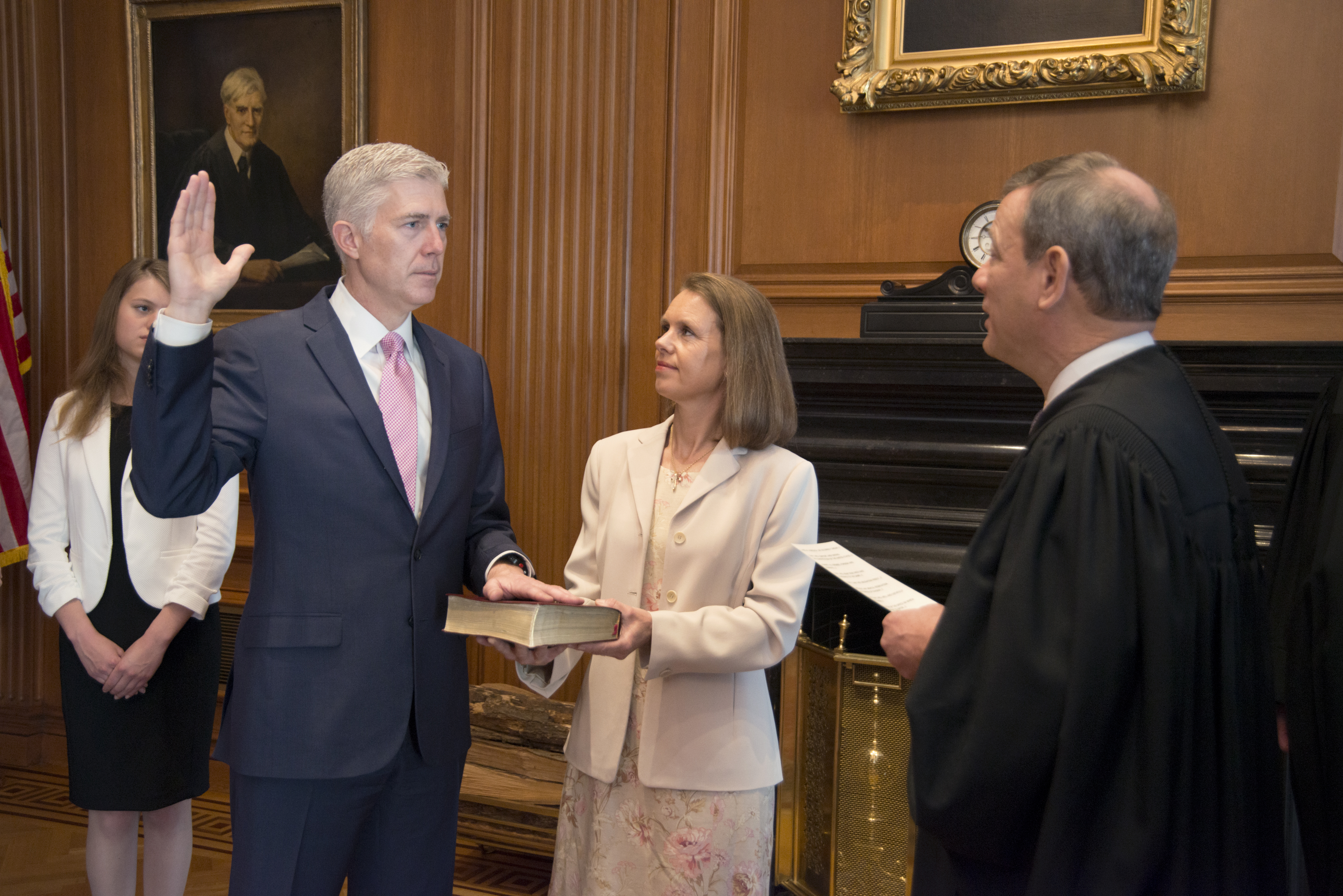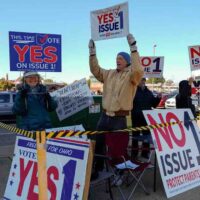

Let Them Eat Cake
Funny, when people mention a Colorado baker, they are usually referring to a shaggy dude wearing a tie-dye t-shirt and baggy pants who came here on vacation shortly after the state legalized marijuana in January of 2014 and then somehow never managed to leave. But in the case of this week’s TRUTH: In 1000 Words or Less, I’m actually going to be talking about a baker from my beloved adopted state of a totally different sort. Yes, in this case, I am going to be discussing the type which actually bakes cakes for a living (not edible pot brownies) and then refuses to sell them to same-sex couples.
In late June, the U.S. Supreme Court agreed to hear the case of a Colorado baker who refused to make a wedding cake for a gay couple because of his beliefs — a legal fight with high stakes for both religious activists and civil-rights advocates. For months, the high court has vacillated on whether it would hear the appeal of Jack Phillips, the owner of Masterpiece Cakeshop in Lakewood, whose refusal of service to Charlie Craig and David Mullins was rejected by the Colorado Court of Appeals and the state’s Civil Rights Commission. The outcome “could have substantial effect around the country, depending on how the court rules,” said Carl Tobias, a court analyst and professor at the University of Richmond School of Law.

There’s been one significant change to the Supreme Court, however, since the case first landed on its steps — the addition of Justice Neil Gorsuch, a native Coloradan who became its ninth member this spring after his nomination by President Donald Trump. Prior to his appointment, Gorsuch earned a reputation as a jurist on the Denver-based 10th Circuit Court of Appeals who gave wide latitude to religious beliefs. Now he’ll get a chance to help decide a case from his home state with major implications for the nation’s legal system. Yeah, call me a cynic, but I don’t think I like where this seems to be headed.
I promise you that you will not find a much stronger advocate than me for religious freedoms and the right to pursue your own religious beliefs free from the encumbrances of an outside society that may or may not object to those personal beliefs, but that line has to stop when it crosses into the territory of discriminating against others who may not share those same beliefs. Please, by all means, go ahead and celebrate and live by your cherished moral principles, just don’t impose them on others. Because that’s just what Jack Phillips is trying to do.
No one is telling Jack Phillips that he has to change his beliefs or lifestyle. Making a cake does not, by proxy, somehow make you gay or suggest approval of a gay lifestyle. That’s just plain whackadoodle. You’re baking them a cake for their wedding, not preparing their marriage vows for crying out loud.
In a letter to the Denver Post last year, Phillips wrote, “I’ll sell anyone any cake I’ve got. But I won’t design a cake that promotes something that conflicts with the Bible’s teachings. And that rule applies to far more than cakes celebrating same-sex marriages. I also won’t use my talents to celebrate Halloween, anti-American or anti-family themes, atheism, racism, or indecency.” Ok, I hear ya, Jack, but no one is asking you to do that. They just wanted the same cake you would have baked for any other heterosexual wedding ceremony- you know, the one you’ve made thousands of times over because that’s the business you’re in. Craig and Mullins did not ask him to make a cake depicting the sexually intimate acts they might engage in within the privacy of their own bedroom. This is not an endorsement of their moral choices; it’s just a damn cake.
And if you want to limit your cakes to only being supplied to marriages you personally support, then stay the hell out of the public sector for selling them. This, after all, is where this issue lies. Phillips can make any decision he darn well pleases within his personal life, including the right to be a prejudiced, insincere bigot, but when he crosses that line into representing a public business, he loses the right to discriminate based upon his personally-held biases and has to treat all people equally, whether he approves their given lifestyle choices or not.
This is no different than the Civil Rights lunch counter cases that forged the way for progress in the 1960’s. As the man behind the counter, our government rests on the principle that you have the right to hold whatever personal beliefs you like, no matter how detestable. We may not like it, but the restaurant owner can hate black people all he likes. That’s his right. But as a business owner, he cannot refuse to serve them. He must put his personal prejudices aside and treat them the same he would any other customer that walks through that door or stop serving everyone altogether.
Hiding behind your right to religious freedom just doesn’t work in this case because as a business owner, you are no longer maintaining just your own personal beliefs, but those of your potential customers as well. No one is attacking Jack Phillips’s personal moral beliefs, just his business’s ability to discriminate based upon them. As a society, we have long stood to protect the right of the individual to live their lives free from discrimination based upon their own lifestyle choices. Let’s just hope the U.S. Supreme Court continues to do so.
Steven Craig is the author of the best-selling novel WAITING FOR TODAY, as well as numerous published poems, short stories, and dramatic works. Read his blog TRUTH: in 1000 Words or Less every THURSDAY at www.waitingfortoday.com






